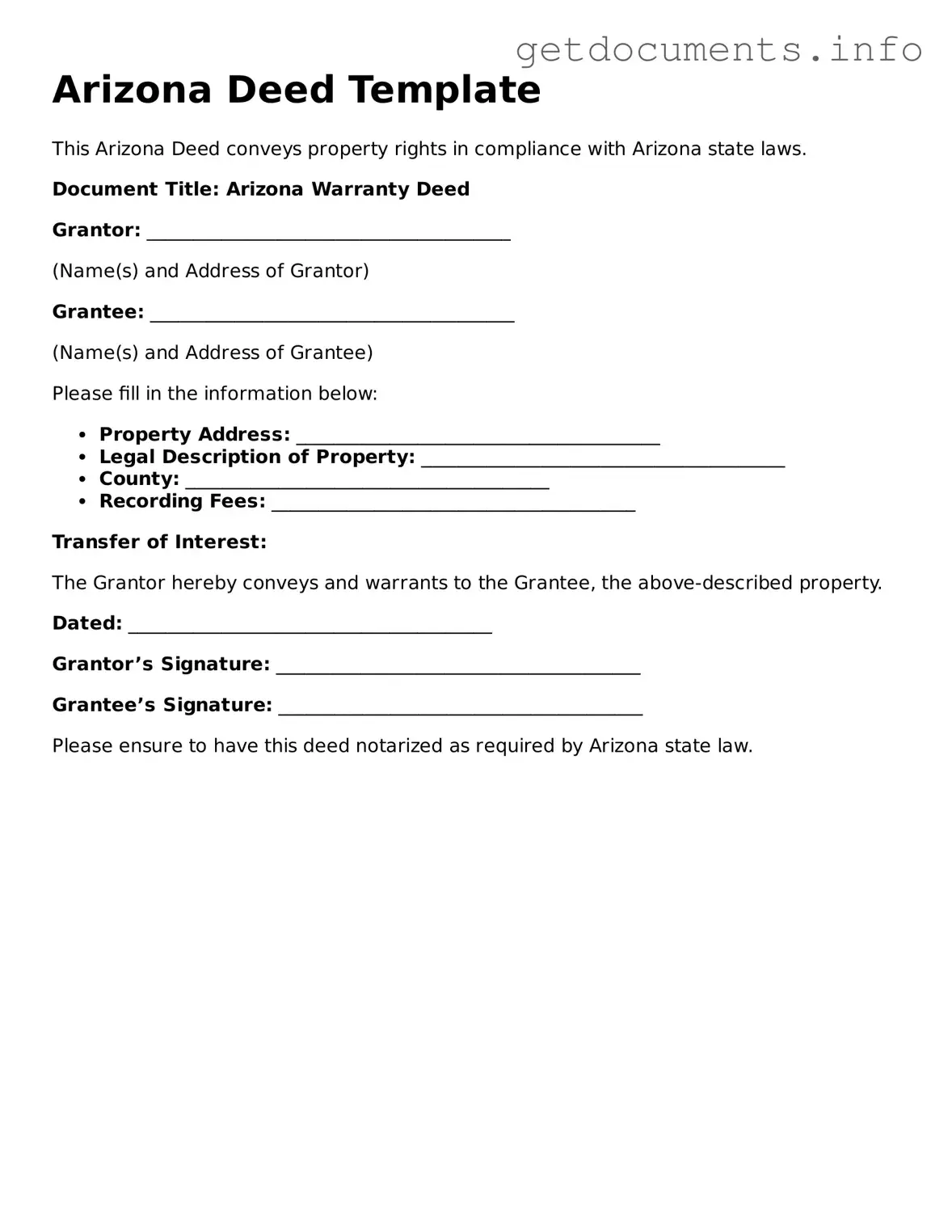Free Deed Template for Arizona
The Arizona Deed form is a legal document used to transfer ownership of real property in Arizona. This form is essential for ensuring that the transfer is properly recorded and recognized by the state. To begin the process of transferring property ownership, fill out the form by clicking the button below.
Access Deed Editor

Free Deed Template for Arizona
Access Deed Editor
Got places to be? Complete the form fast
Fill out Deed online and avoid printing or scanning.
Access Deed Editor
or
⇩ PDF File
